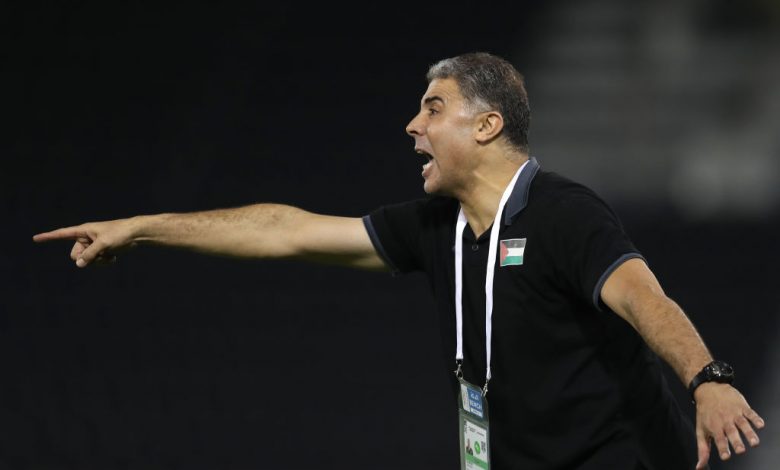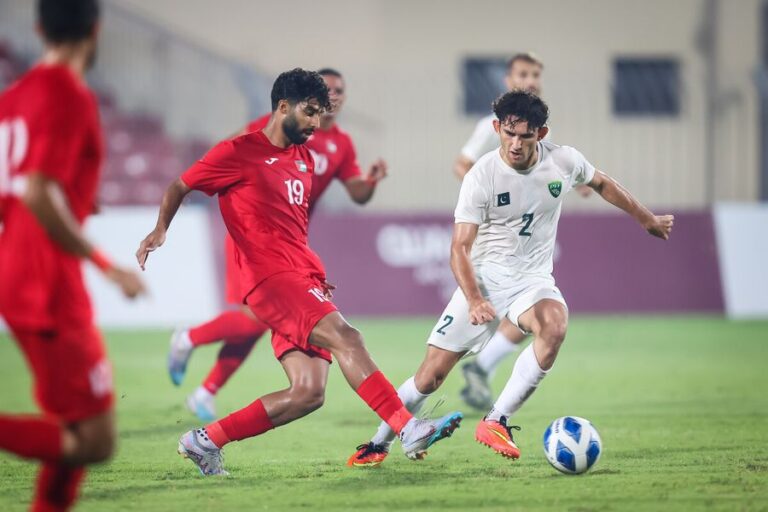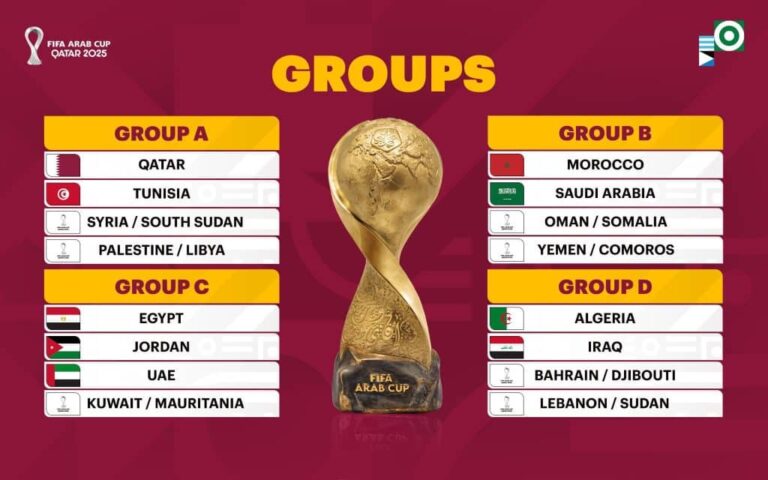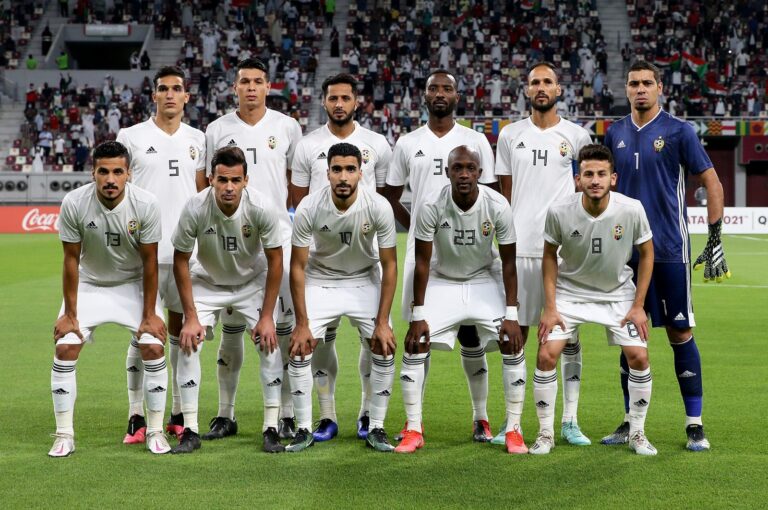It has been a while since Al-Fida’i took to the pitch and it won’t be long now until the national team starts playing matches that matter. As such, this friendly with Bahrain has an air of importance to it, not normally associated with a March friendly.
As mentioned last year, Makram Dabboub knows the identities of half the players who will be on the plane to Qatar early next year. The delay of the Asian Cup will now afford him added time to communicate his vision and to identify more players capable of executing it.
Here are three things to look out for ahead of Palestine’s first match of the 2023 Calendar Year
Will the recently recovered play a role?
Oday Dabbagh suffered an injury against Casa Pia two weeks ago and has missed his last two matches with Arouca. While captain Musab Al-Battat has yet to play this season following a stellar debut season in Egypt. With only one game on the slate this month will Dabboub risk two players who are known quantities? Or will he hand an opportunity to backups?
The situation is not dissimilar to Palestine’s first game at during Asian Cup qualifying. Back then Dabbagh was only 70-80% fit and Battat had missed the warmup camp that was held in Turkey. Dabboub decided to shuffle his deck, using Farawi as a right back and playing an attacking triumvirate that included both Saleh Chihadeh and Mahmoud Wadi alongside Tamer Seyam.
That match against Mongolia did not go as planned with a stubborn defence, horrendous pitch, and less than favorable refereeing denying Palestine a goal for the first 85 minutes. Palestine played better when their captain entered the pitch in the 60th minute and were even better when Dabbagh and Abu Warda came on in the 75th.
That said, the mission for Palestine needs to be rounding out the squad and this could present an opportunity for Musa Farawi to further state his case as Al-Battat’s deputy and for somebody like Badr Moussa to show that he too can play Dabbagh’s 9 1/2 position.
Does the attack need a reshuffle?
Each Palestine manager for the past decade has been defined, for better or worse, by a single player.
Markram Dabboub’s reign has seen Tamer Seyam hit new heights and he has been especially effective in partnership with Oday Dabbagh. The Jerusalemite has scored half of his 12 international goals under Markam Dabboub while also retaining his knack for providing assists with two assists in the time span.
Seyam has become Dabboub’s talisman just like Ashraf Nu’man was for Jamal Mahmoud.
Noureddine Ould Ali might be remembered for his bunker ball tactics but his attacking tactic involved one man- Mahmoud Wadi- isolated and asked to do the impossible. 13/16 of the player’s caps have come under the tutelage of the Algerian.
It seemed that the natural combination would be to pair Wadi with Seyam and Dabbagh. There are some doubts about that proposed forward line though.
Wadi’s rise to prominence has arguably been more keenly felt in Egypt than it has been in the Palestinian national team. The striker’s fine performances for Al- Masry prompted Pyramids FC to fork over a transfer fee worth over $1 Million USD in 2020.
With Al-Fida’i life has been less rosy. Playing bunkerball for 82% of your national team career makes it difficult to score goals but Wadi seems to be if not cursed, at least burdened by the weight of expectations. He hit the crossbar against Yemen during Asian Cup qualification and then limped off injured. His replacement, Saleh Chihadeh, went on to break his own duck scoring twice and forcing an own goal in relief of Wadi against Yemen and Philippines.
The tried and tested options may not be starters going forward, though. Mahmoud Wadi went nearly a year without a game at Pyramids SC and is only beginning to find his feet again on loan at Tale’a El-Geish. Saleh Chihadeh elected to become an amateur footballer- to ostensibly still collect a wage from Future FC– and is playing in the Swiss Fourth division.
So the door is still very much open for one of the Qombor brothers to state their case to be Palestine’s #9. It might even be open for a complete wild card like Mohammed Maraaba who scored 21 goals this season but has only ever appeared for Palestine in two unofficial matches against Afghanistan and Algeria.
Or maybe we will see talent come in from the diaspora in the shape of Wessam Abou Ali- who is currently the top scorer of the Danish second division.
Are the stopgap solutions the best Palestine has?
Mahmoud Abu Warda is a lot of things but he is most definitely not a #10. The diminutive midfielder is far more effective out wide and in space- a role he mastered while captaining the Olympic Team. That said, he has shown the ability to create danger in more central positions but the worry is that Abu Warda might not be effective against stronger opposition.
The same goes for Samer Jondi and Mohammed Khalil at left back. In a jam, they are two players who can handle the middle and lower tier teams of Asia.
Bahrain is a Top 15 Asian team and Palestine will face two teams of that profile in Qatar next winter.
To make matters worse there is surfeit of options making every opportunity to test and tinker before the Asian Cup absolutely vital.
In midfield, the cast of challengers could yet establish themselves. Anas Bani Odeh (20) has been getting rave reviews since bursting onto the scene with U20 team in 2019 and was arguably one of the best at his position in the WBPL this year. Another candidate is Samer Zubeidah (21) who plays a little deeper than Bani Odeh and who provided Mohammed Maraaba with a boatload of assists.
Monir Albadarin (17) who would be the youngest of a young bunch is another option. He was arguably Palestine’s best player when the U20 team made it to the semifinals of the Arab Cup this past summer. With regular playing time in the Bulgarian second tier to bolster his case, he could force his way into the squad.
Finally, there is Muhamed Alghoul (26) who has declared for Palestine but could not feature since declaring back in 2021. Now at Wadi Degla in Egypt and chasing promotion to the Premier League he could provide Palestine an option as either a #10 or a #8.
Crucially, none of these players has a single cap to his name. Looking at the left back position, the options are even more limited.
The challenger to the current Jondi/Khalil timeshare will most likely be from the Olympic Team player pool. Al-Bireh’s Wajdi Nabhan (21) and Ameed Sawafta (22)- now an established starter for Naft Missan in Iraq might be the team’s best options going forward.




